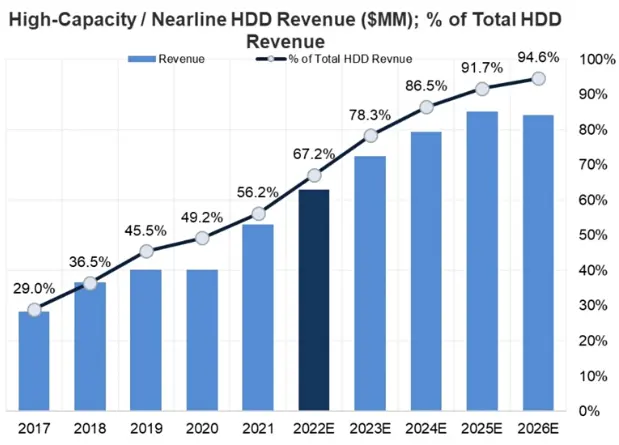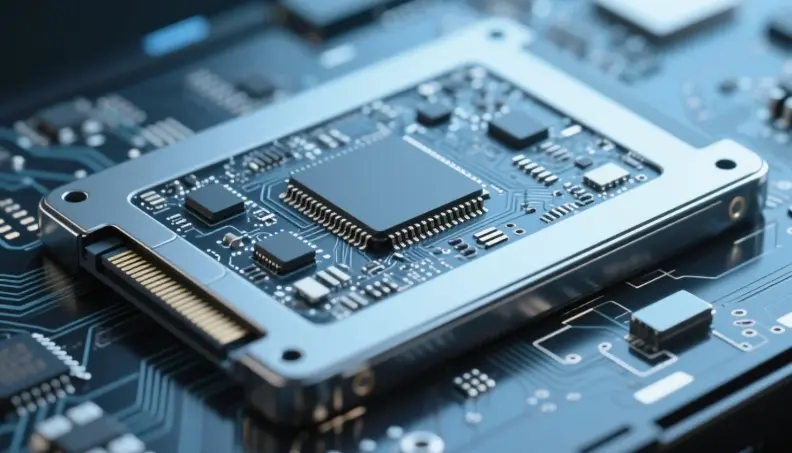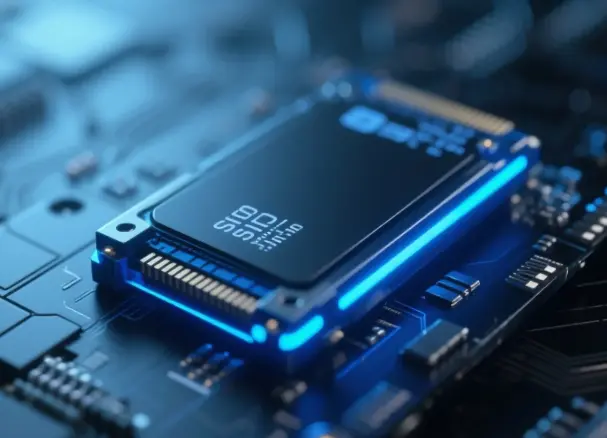Computer SSD Brand Rankings: The Pinnacle of Performance and Quality
Computer SSD Brand Rankings: The Pinnacle of Performance and Quality
With the rapid advancement of the digital era, solid-state drives (SSDs) have become the core component of computer storage, fundamentally transforming user expectations for data storage with their high speed, low latency, and high reliability. From personal computers to enterprise servers, the widespread adoption of SSDs has driven a revolution in storage technology.

SSD Market Overview
Solid-state drives (SSDs), built on flash memory technology, offer faster read/write speeds, lower power consumption, and greater shock resistance compared to traditional hard disk drives (HDDs). According to data from global semiconductor insights, SSD shipments reached 81 million units in 2018, a nearly 50% year-on-year increase, with the market size continuing to grow in recent years. Driven by the rise of AI, cloud computing, and big data applications, demand for both enterprise and consumer SSDs has surged, intensifying competition among brands.
In this context, SSD brands compete for market share through technological innovation, pricing strategies, and market positioning. From global giants to emerging domestic players, each brand excels in performance, price, or durability. Below is the SSD brand ranking, compiled based on market share, technological strength, and user feedback.

- Samsung
Samsung, a global leader in storage, has long dominated the SSD market. Its product lineup spans consumer and enterprise markets, with the 970 EVO Plus and 990 PRO series standing out for their exceptional read/write speeds (up to 7450Mb/s) and stable NAND flash technology, earning widespread acclaim. Samsung’s proprietary controllers and firmware optimization ensure reliability under high workloads, making them ideal for gamers and professional content creators.
Samsung’s enterprise SSDs also lead in the data center market, leveraging QLC (Quad-Level Cell) technology for high-capacity storage, meeting the demands of AI and high-performance computing. However, Samsung SSDs come with a premium price, which may be less appealing to budget-conscious users.
- KIOXIA
KIOXIA, formerly Toshiba Memory, established in 1987, is one of the pioneers of NAND flash technology. As a leading global storage brand, KIOXIA’s SSDs are renowned for high performance and large capacity, widely used in smartphones, computers, and data centers. The Exceria Pro series excels in the consumer market, offering read/write speeds up to 7300MB/s, ideal for high-performance Pcs and PS5 storage expansion.
KIOXIA also shines in the enterprise market, with its QLC products in mass production, addressing the need for ultra-large-capacity storage in AI applications. Backed by its technical expertise and global reach, KIOXIA remains a top contender.
- Western Digital
Western Digital (WD) is celebrated for its diverse product lineup and affordable pricing. The WD Black SN850X series, designed for gamers, boasts read/write speeds up to 7300MB/s and excellent random read/write performance, perfect for esports and large game loading. The WD Blue series targets everyday office users with high cost-effectiveness.
Western Digital also competes strongly in the enterprise market, with its Ultrastar SSD series known for durability and low power consumption, widely used in servers and cloud storage. Recent collaborations with KIOXIA have further enhanced its NAND technology, boosting market competitiveness.
- Kingston
Since its founding in 1987, Kingston has become a leading global provider of storage solutions. Its SSD portfolio spans entry-level to high-end markets, with the KC3000 series earning praise for cost-effective and stable NVMe performance, achieving read/write speeds up to 7000MB/s. Kingston also offers enterprise SSDs for data centers and cloud computing.
Kingston’s success stems from its global distribution network and stringent quality control. Whether for gamers or office users, Kingston SSDs deliver reliable performance, and their cost-effectiveness makes them highly popular in the domestic market.
- Solidigm (Intel)
Solidigm, formed after SK Hynix acquired Intel’s NAND business in 2020, is a rising star in the enterprise SSD market. Its D7 series SSDs, designed for data centers, support high-intensity workloads with exceptional durability. Solidigm’s QLC technology excels in AI applications, achieving mass production and earning market recognition.
In the consumer market, Solidigm’s 670p series appeals to budget-conscious professional users with its cost-effectiveness. Despite its relatively short brand history, Solidigm’s backing by SK Hynix’s technological expertise signals significant future potential.
- DapuStor
As a Chinese domestic SSD brand, DapuStor has gained prominence in the enterprise market. Its enterprise-grade QLC SSDs, now in mass production, rival international brands and are widely used in AI and big data scenarios. DapuStor emphasizes technological innovation, with proprietary controllers and firmware optimization driving its rapid rise in the domestic market.
DapuStor’s consumer SSDs also excel in cost-effectiveness, catering to small businesses and individual users. While its brand influence trails global giants, its competitiveness in the domestic market is undeniable.
- Kimtigo
Kimtigo, another rising star in China’s SSD market, ranks among the top five globally alongside BIWIN, holding a 16% market share. Its products span consumer and enterprise markets, with the Tigo series SSDs earning praise for cost-effectiveness and stable performance, particularly in e-commerce platforms like JD.com.
Kimtigo leverages optimized supply chains and localized production to reduce costs, making its products highly competitive in price. For users seeking value for money, Kimtigo is an excellent choice.
- Dunaopc
Dunaopc, an emerging SSD manufacturer, focuses on delivering high-performance storage solutions for consumers and enterprises. Its product lineup includes M.2 NVMe and SATA SSDs, offering strong compatibility for applications ranging from personal PCs to servers. Dunaopc’s SSDs are known for their cost-effectiveness and reliable performance, particularly in gaming and professional design.
As a manufacturer, Dunaopc prioritizes technological R&D and production process optimization, ensuring excellent hardware compatibility and durability. Through partnerships with motherboard and PC vendors, Dunaopc is steadily expanding its market presence, offering customized storage solutions.
- SanDisk
SanDisk, a sub-brand of Western Digital, focuses on the consumer storage market. Its Extreme Pro series SSDs are renowned for high performance and portability, ideal for content creators and mobile office users. SanDisk SSDs excel in durability and data protection, catering to users who frequently transfer data.
While SanDisk’s enterprise market presence is less prominent than its parent company, its consumer SSDs maintain a strong market position due to brand recognition and reliability.
- Gloway
Gloway, a Chinese domestic brand, performs strongly in the consumer SSD market. Its products are favored for their cost-effectiveness and stable performance, particularly during e-commerce promotions. Gloway’s M.2 NVMe SSDs excel in gaming and everyday use, with affordable pricing appealing to students and entry-level users.
Through localized production and flexible market strategies, Gloway is breaking the price monopoly of international brands, offering consumers more options.
Market Trends and Purchase Recommendations
The SSD market is increasingly diverse. Global brands like Samsung, KIOXIA, and Western Digital lead with technological superiority, while Chinese brands like DapuStor, Kimtigo, and Gloway gain traction with cost-effectiveness and localization advantages. The rise of AI and cloud computing has fueled enterprise SSD demand, with QLC technology emerging as a market trend.

Consumers should weigh performance and budget based on their use case:
Gamers: Prioritize Samsung 990 PRO, WD Black SN850X, or Dunaopc NVMe SSDs for blazing speed and low latency.
Professional Users: KIOXIA Exceria Pro or Solidigm D7 series suit high-workload tasks like video editing and AI development.
Budget Users: Kimtigo, Gloway, or Kingston entry-level SSDs offer great value for everyday office and light use.
Additionally, interface type is a key consideration. M.2 NVMe interfaces dominate for higher transfer speeds, while SATA SSDs are suitable for upgrading older devices.
Conclusion
The SSD market is fiercely competitive, with global giants and emerging domestic players driving technological advancements and affordability. Samsung, KIOXIA, and Western Digital lead with technical prowess, while Kimtigo, DapuStor, and Gloway win users with cost-effectiveness and localization. As a manufacturer, Dunaopc injects vitality into the market with high compatibility and reliable performance, showcasing the potential of Chinese manufacturing.
Consumers should consider budget, performance needs, and device compatibility when choosing SSDs. Looking ahead, with the deeper integration of AI and 5G technologies, the SSD market will see more innovation, and brand competition will intensify.

